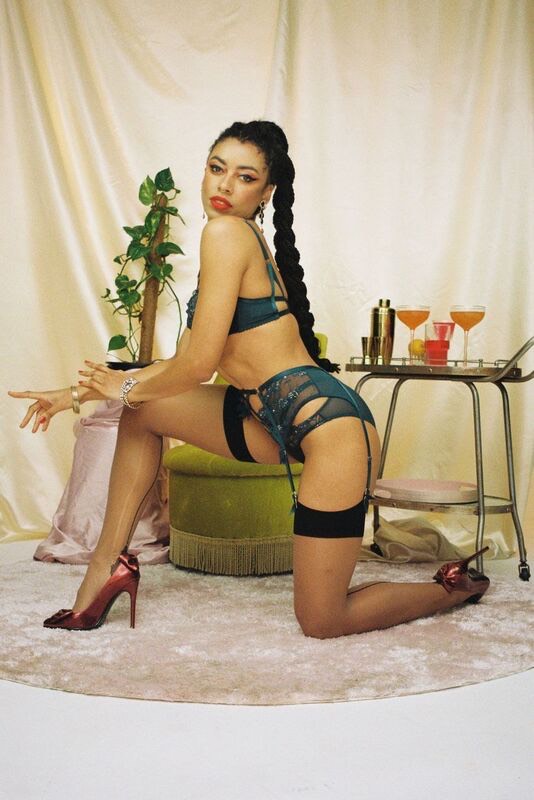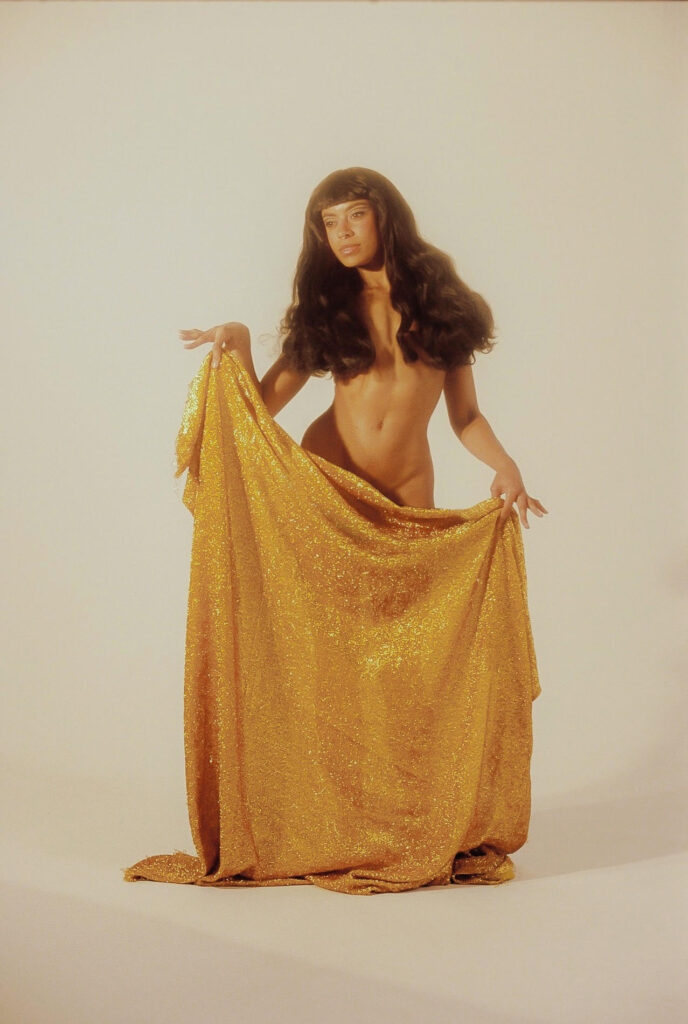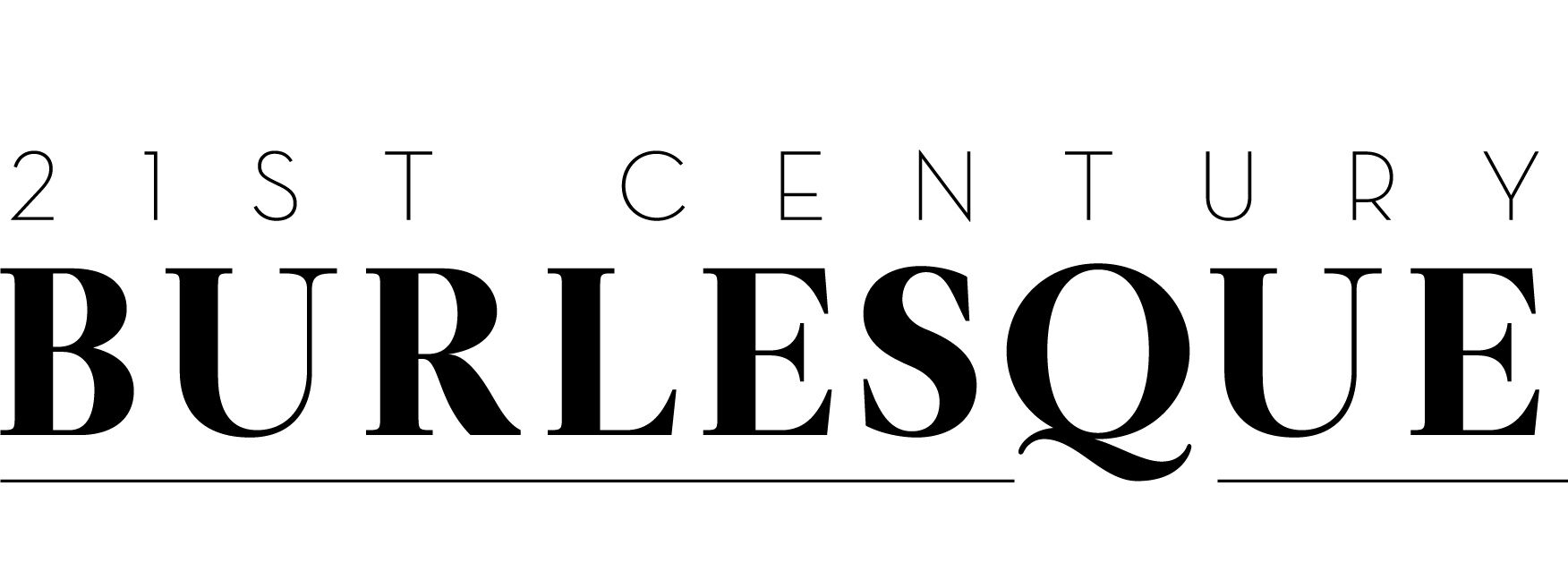In the somewhat early days of lockdown, when life had abruptly ground to a halt the world over and the realization was settling in that it might stay that way, I spoke to burlesque star Zelia Rose via Zoom at home in Melbourne.
Keeping still doesn’t come naturally to Zelia, whose kinetic energy and electrifying presence had taken her burlesque career to a near-constant state of touring when the world began unraveling due to Covid-19. She had just completed a 51-show tour of Australia with Yummy, Melbourne’s multi award-winning cabaret, and was taking a break before heading out again for several months of dates with Dita Von Teese’ Glamonatrix tour.
And then everything went sideways. Venues closed, bookings were postponed or canceled, and across the world performers saw their livelihoods unpredictably, suddenly disappear. The looming threat of illness paired with the inability to earn a living became a very real anxiety. The pleasure and privilege of actual live performance suddenly became a distant dream.
“It’s actually quite catastrophic,” Zelia says of how the community is coping. “Our industry is so heavily impacted.” In the days since the initial quarantine orders, performers have turned to releasing previously recorded performances online and reimagining ways to deliver live experiences while navigating the new normal.
“For me the success I’ve had is actually just being completely unique and making my own rules up.”
The array of (sometimes literal) bedroom cabarets has been staggering. Artists and musicians the world over have been posting free, donation-based, and paid content, while the hardest part for viewers has often been tracking time zones and schedules.
With an abundance of options to choose from and funds in increasingly scarce supply, the release of a steady stream of content brings a new set of complexities. Zelia herself has a few virtual one-offs and online workshops planned, but the way forward is tenuous.
“It does lift spirits and keep people connected,” Zelia reflects, “but I worry that if it goes on for too long, and when one does release content that does need to be paid for … you do need to generate an income stream. There’s also the concern that it might undermine the value of what we’re doing in some way. I’ve kind of been in two worlds about it. It’s awesome and it’s really uplifting, but then… where do we go from here? This stuff is evolving so quickly.”
Isolation has also afforded a break from life’s increasingly high standards for productivity, even if accomplishing less can feel a bit uncomfortable. “It’s the strangest opportunity ever,” Zelia agrees of the sudden pause. “There’s also the grief that you need to allow yourself. I have actually found so much joy in just cooking awesome meals; basic stuff like that really helps me. Things that I can’t do on tour.”

If Zelia’s social media is any indication, she still manages to throw together both a look and a sense of optimism in her day to day. A masked, quarantine-casual but still effortlessly cool Zelia shopping for groceries in her IG stories made me smile not long ago. She’s also making time to get back into learning photography and trying her hand at learning to DJ.
“I’ve really just been concentrating on things that I haven’t been able to finish while touring. There’s another creative project that I’m doing behind the scenes, and I’ve been doing some costuming. I make stuff as best I can,” she says. “I’ve been making stuff for a while but I’m not a trained seamstress in any way or a really mathematical sewer. I really love to design and I’ve always been super involved with everything I wear, constructing parts of it that I can, and if there’s bits I can’t, I get someone else to do it. But I’ve got so much time now. I can actually brush up,” she laughs.
“When I went to the States I was happy I could walk into the chemist and buy my foundation color, whereas [in Australia] you’d have to walk into a more upscale store to do that.”
Born in Melbourne of Congolese-European descent, Zelia Rose Kitoko (‘kitoko’ translates to ‘beautiful’) describes herself as a shy little girl. As energetic as she was bashful, Zelia’s mother enrolled her somewhat reluctant daughter in dance class. The classes sparked a lifelong love of dance while drawing Zelia out of her shell. She was always drawn to creative pursuits, deep diving into the worlds of painting, music, and fashion before studying fine art and dance at university.
Had she been accepted into the fashion course she was interested in, her career may have taken a different turn. Undaunted, the world was wide open and Zelia was keen to absorb all the creativity around her.
“It’s super diverse here – we live in a little bubble, as we’re so far away,” Zelia says of the arts culture in Australia. “We have an awesome subculture that’s really well developed. There’s a super-vibrant drag, burlesque and fashion scene, and there’s a lot of crossover. Everyone has a unique style, which keeps it really fresh. We also have huge fringe fests: the biggest in the world is in Edinburgh, the second biggest is in Adelaide, and the third is in Perth,” she says. In 2019, Adelaide Fringe featured more than 7000 artists from around the world in 1326 events and 517 venues.
“In terms of cities that are hustling and bustling it’s pretty much Sydney and Melbourne,” Zelia continues. “Melbourne is the cultural hub of Australia, a lot of music and arts. There are so many artists here that it’s like Berlin in a way – a lot of things going on and relatively easy to live here.
“I would say that Australia definitely lacks some cultural diversity: when I went to the States I was happy I could walk into the chemist and buy my foundation color, whereas here you’d have to walk into a more upscale store to do that,” she recalls. In advertising and the casting of runway shows diversity is evolving in increments, but
there’s still so much work to be done.
Since I spoke to Zelia, Black Lives Matter has become a worldwide call to action, one that Zelia and many others in the burlesque community have embraced and marched for.

Performing burlesque was not something Zelia anticipated. Without a clear picture of what she wanted to do, after finishing school she met someone that ran a burlesque house in Melbourne and was invited to teach dance. As she became more involved, she realized that burlesque’s crossover potential suited her. “I always had such an interest in fashion, design, construction, and music, and it married up all of those worlds,” she recalls.
Next the burlesque house tasked Zelia with teaching fan dance. “I hadn’t ever picked up a pair of fans,” she confides. “So I brought a pair home, started practicing, and sort of invented my own style of doing fans,” she laughs. “I started teaching fans and Beginning Burlesque, which I actually found quite hard. As a dancer I was used to doing choreography, moving really fast, teaching it like that.
“With burlesque it was a completely new world for me – having to slow it down and work on different nuances like sensuality, finding those elements in it. A lot of times when you are training as a dancer they tell you to go, go, go … get your body into every style, but what it taught me was to feel more of a sensuality and emotional response to what you’re doing, and that can tell a story.”
Zelia’s now famous Josephine Baker act was created for a history of burlesque show. “It’s funny because when I started presenting work under the burlesque house, she told me, ‘You’re dancing around too much, you need to dance around less.’ I kind of never listened. It was better for me. I would have been following a formula to be like somebody else. For me the success I’ve had is actually just being completely unique and making my own rules up. If I want to dance around a lot, I dance around a lot, and that’s what people have actually enjoyed. And that’s kind of my style now.”
As for the progression from dance into nudity, like many, she found it was less daunting than imagined.
“I was surprised how easily it translated to me, and it was actually quite empowering. It dissolved a few issues with body dysmorphia for me and was really good and positive in that way. It surprised me actually that I didn’t feel strange about being nude,” she reflects. “When you start owning your sexuality as a naked woman or whatever, it is seen as sexual and unacceptable. It’s interesting, the politics around that. I think it reveals a lot about society, and it reveals a lot about yourself – just being nude, that empowering sexuality. It’s awesome to be able to do that.”

Zelia’s hard-wired dance training and charisma captivated audiences, not to mention her impossibly long-legged strut and fierce shimmy. It wasn’t long until opportunities and producers found her.
She began performing solo spots and joined Australian collaborative cabaret, Yummy. “I had worked with a few Australian production companies, including a high-production Star Wars themed show, which toured the States twice, probably five years ago now. The director is from Sydney and the producer has done a lot of burlesque events in Sydney. I ended up playing Darth Vader and Boba Fett in that show. They were the best roles!
“My favorite and least favorite bit was getting into a full latex suit every day, and I had the helmet and like a seven-meter cape on stage, it was just insane. I did love wearing that suit – it felt pretty amazing – but it was a lot to get into. If anyone saw what was under there, it was a serious situation. There was silicon and then you put the suit on; it was like putting on a full-body condom,” she remembers.
“I really liked Lisa Bonet; her character was so boss and she was really cool. Seeing a black woman be so awesome and stylish and the star of a show definitely put her up there as a style icon for me.”
At the 2015 Burlesque Hall of Fame, Zelia won ‘Best Debut’ and received a standing ovation. It was a pivotal moment, one of many to come in Zelia’s career. “It really cemented the fact that I could just be myself, and me being myself as an artist was enough. That people embraced that and found joy in it I think was a ‘moment’ for me – that this is actually real, and I can do this, you know what I mean? It made me feel like me being me was what people wanted to see.”
In 2016, Dita and Zelia started talking and an audition was arranged the next time Dita toured Australia. The next year Zelia joined the cast of The Art of the Teese. Her career trajectory was reaching warp-speed. “One minute I was touring here and doing bits and pieces and one-offs, the next I was touring the world. It just kind of happened for the Dita show and was happening with other shows as well. I started working with Strut & Fret, a circus production company, doing these big seasons around Australia. So I was juggling that and Yummy and Dita, and was never at home. It was insane.”

Naturally, the experience of touring internationally with Dita’s extremely high production values changed Zelia’s scope for the better. “There’s nothing to really compare with those shows,” she muses. “There’s more crew than cast, there’s so much detail, it’s just an epic show to be part of. It’s like being part of something in history that’s in its own realm.”
“The way she navigates business, and the way she is so driven and attentive to detail in all aspects of what she is doing is hugely inspirational,” Zelia says of getting to know Dita. “She just works nonstop. Hearing her stories and how she ended up where she is, there’s a lot that people don’t see. She’s always worked so hard. It makes you want to keep going in your individual work, because you see the success that she has had by being herself and doing exactly that. It was definitely inspiring working with her.
“Also the privilege of being selected allowed me a lot of other privileges as well. I was selected to be part of a lot of shows in Europe. My reputation really escalated. Having the backing and endorsement of someone like her allowed me a lot of space and recognition. That has propelled me hugely.”
“[Dita] just works nonstop. Hearing her stories and how she ended up where she is, there’s a lot that people don’t see. She’s always worked so hard.”
Zelia’s evolution as a performer is, fortunately for us, still taking place on the world stage (even if for the moment that stage is online). Zelia was voted #1 Most Influential Burlesque Industry Figure in this publication’s Burlesque Top 50 2018, and she is constantly embracing the new. “My costuming has escalated crazily, which is great, because my standards have become so high now,” she laughs. “Though I love looking back six years ago and being like what was I actually wearing?”
“My style has absolutely changed,” she continues. “I’m inspired by a lot of different things, so it’s probably evolved more because I used to be more interested in the vintage aspect of burlesque when I started. I still do my Josephine Baker act occasionally, but I’ve kind of moved away from being specifically into vintage style. I’m a bit of a chameleon. I might be interested in doing something that is more performance art, or drag, or glamour from maybe the 80s, say, then step over into something else like rockabilly, or something a bit more gritty. I love to jump in between and often when I make acts; they are very diverse.”

Currently Zelia has found herself drawing inspiration from punk fashion greats like Vivienne Westwood, Jean Paul Gaultier, and the Australian-born, London-based performance artist and designer Leigh Bowery. Such outsider artists are a long way from the Spice Girls and No Doubt she grew up on.
“In my generation it was actually Gwen Stefani who was my style icon. A little bit crazy, a little bit sexy. Also when I was growing up there were a lot of throwback tv shows on, and I really liked Lisa Bonet; her character was so boss and she was really cool. Seeing a black woman be so awesome and stylish and the star of a show definitely put her up there as a style icon for me. I was obsessed with the Spice Girls and I was obsessed with ballerinas. That was my ideal – either a ballerina or a rock star – classic young girl stuff.”
When the world opens up again, dream collaborations with musicians such as her friend Dandy Wellington in NYC are on her wish list… or perhaps Missy Elliott, or Rihanna. “It would be cool to do something with Rihanna. I really like how she’s kind of enterprised everything. As I mentioned before, in Australia I couldn’t go down to the chemist and get my foundation color, and I remember thinking it would be great to create a line that was accessible for everybody. And she went and did it, and she did it so correct,” Zelia laughs. That potent combination of extreme passion and extreme business acumen ignites in women like Rihanna, and of course, Dita Von Teese.
When restrictions lift and the health risks subside, the Glamonatrix tour will go on as planned. And what an ecstatic and completely epic celebration of live burlesque it will be. “We do have a light at the end of the tunnel because they just rescheduled for 2021. We start in February, and I think it goes to March? It’s so great, because we do have something to look forward to now. It will be so good,” she says, a touch wistfully. “I love to connect in person. Being a live performer, that’s what I really enjoy. It’s a live thing, just being there, in that moment.”
Visit zeliarose.com and follow Zelia on Instagram at @zeliarose
Zelia Rose interviewed by Jessica Price for 21st Century Burlesque Magazine.



